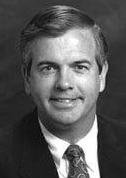© 2014 The Texas Lawbook.
By Natalie Posgate – (September 23) – A San Antonio probate judge has granted a summary judgment for ACCC Holding Corporation (AHC), dismissing all claims that the deceased founder wrongfully transferred his wife’s inherited shares to his children before his death.
Sandra Ikenaga claimed that her late husband and AHC founder Jack Hiromi Ikenaga, Sr. “allegedly” transferred their $50 million community property interests to his children, stepson and grandchildren before his 2011 death “in secret, without the knowledge, consent or agreement” of Ms. Ikenag. The estate includes her late husband’s shares in AHC and its subsidiaries, the original complaint says.
Ms. Ikenaga brought the lawsuit against the insurance holding company on claims of breach of fiduciary duty, fraud, unjust enrichment and conspiracy.
But Beirne, Maynard & Parsons partners Roger McCleary and Joe Cohen, who led the defense for AHC, managed to dig up some rarely cited case law to stick up for their client.

It came from a seldom-cited provision of the Uniform Commercial Code that McCleary and Cohen said professors “don’t teach in most law schools,” but is “an important tool for corporate counsel.” They argued Ms. Ikenaga’s claims against AHC were all barred because the UCC provision says corporations are not liable to third parties for following the transfer instructions of their registered shareholders.
Though there are exceptions to the rule, Probate Judge Polly Jackson Spencer ruled a hearing last week that Ms. Ikenaga could not establish any legitimate challenges to the rule that would validate her claims.
McCleary and Cohen’s victory was also heavily based on their ability to convince Judge Spencer that it was necessary to apply Delaware and Georgia law to certain aspects of the legal dispute.
While AHC is a Houston-headquartered business, it is incorporated in Delaware. Judge Spencer found it appropriate to apply Delaware law in regard to whether AHC owed any fiduciary duty to a shareholder’s spouse. Delaware law says that it doesn’t.
Judge Spencer also granted AHC’s request to apply Georgia law for the characterization of marital property. Unlike Texas, Georgia law says a spouse has the right to “do with his or her property as he or she wishes,” which includes spouses’ “statutory right to completely disinherit one another,” and “clearly permits a spouse to transfer property in the spouse’s name without any obligations or duties to the other spouse,” AHC wrote in its motion to apply foreign law.
McCleary and Cohen said applying Georgia law in this instance was necessary because the Supreme Court of Texas ruled that courts should look to the law of the state where the husband and wife were living when they acquire property to determine whether it is community or not. Mr. and Ms. Ikenaga were living in Georgia at the time Mr. Ikenaga acquired his shares in AHC.

“We’re pleased this ruling helps confirm that claims against the issuer of the shares are not viable when the transfers of the shares are pursuant to the instructions of the registered owner of the shares,” McCleary said.
Ms. Ikenaga’s legal team was led by California attorney Roland Colton and included Houston attorneys Jason Ostrom and Nicole Slain and San Antonio attorney Philip Ross. They could not be reached for comment.
Renée McElhaney, a partner in Beirne, Maynard & Parsons’ San Antonio office, represented AHC along with McCleary and Cohen, who are both based in Houston.
© 2014 The Texas Lawbook. Content of The Texas Lawbook is controlled and protected by specific licensing agreements with our subscribers and under federal copyright laws. Any distribution of this content without the consent of The Texas Lawbook is prohibited.
If you see any inaccuracy in any article in The Texas Lawbook, please contact us. Our goal is content that is 100% true and accurate. Thank you.
